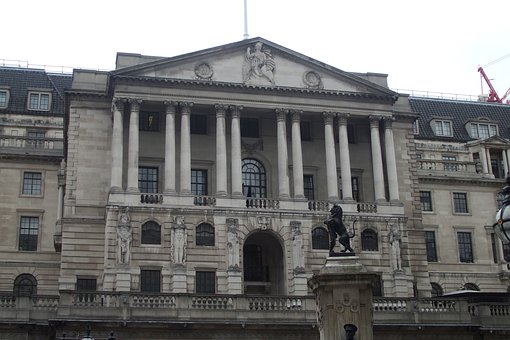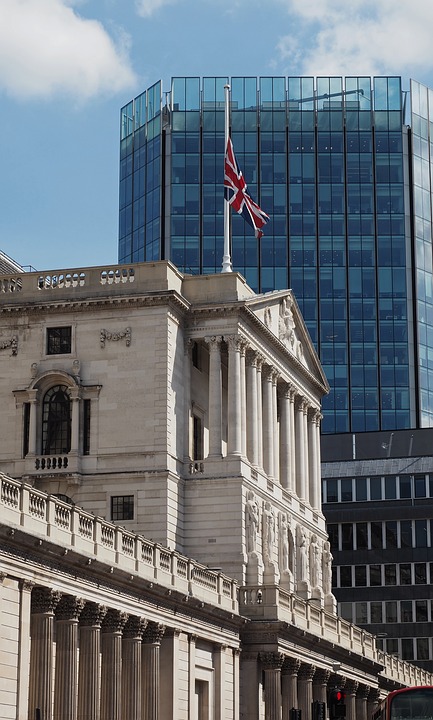The Bank of England has held its base rate at 0.1% but warned it expects a sharp recession in the first half of the year as a result of the coronavirus restrictions.
In its May monetary policy report, the bank noted that the spread of Covid-19 and the measures to contain it were having a significant impact on the United Kingdom and many countries.
“Activity has fallen sharply since the beginning of the year and unemployment has risen markedly. Economic data have continued to be consistent with a sudden and very marked drop in global activity,” it stated.
However, the Bank of England also highlighted that there were some “tentative signs of recovery” in countries that were starting to relax restrictions and that financial markets had recovered in part.
And indicators of UK demand have generally stabilised, albeit at very low levels, in recent weeks after “unprecedented falls” during late March and early April.
Banking stability
The central bank believes the core banking system has “more than sufficient” capital to absorb expected losses and that there will be capacity to provide credit to support the UK economy.
In its scenario, it is anticipating that overall economic activity (GDP) will fall 14% in 2020 but rebound by a similar amount in 2021, although it will not reach its pre-coronavirus size until the middle of next year.
Household spending is expected to follow a similar pattern to GDP, but consumer savings is anticipated to rise sharply this year but then fall back in the next two years.
This will have an impact on inflation, as will falls in oil prices, with inflation potentially hitting 0.6% over 2020 as a whole and reaching zero at the end of the year.
Unemployment is predicted to double to around 8% in 2020 but return to around the pre-coronavirus position in 2022.
The scenario also assumes the UK will complete an orderly free trade agreement with the European Union at the end of the year, however this is not certain and disagreements during negotiations have been public from both sides so far.
Kevin Brown, savings specialist at Scottish Friendly, said: “The Bank of England’s report on the economy makes for bleak reading, but it is still holding out hope for a reversal of much of the economic misfortune the country is suffering thanks to coronavirus, by the middle of next year.
“Markets have largely responded to the crisis already and much of this fresh economic data is already priced in. It is impossible to predict a bottom, but one thing’s for sure, savers won’t find succour in a savings account paying 0.5% interest.
“It’s a tough time for savers out there and many are being caught out by the speed at which rates on cash accounts are changing. The signals given out by the Bank of England suggest the base rate is going nowhere and this should be a catalyst to anyone with a savings pot to make sure they’re getting the best out of it, by considering ways to maximise their potential returns.
“Many high street banks, building societies and challenger banks are cutting rates but there can still be ways to generate above inflation returns by exploring alternatives such as regular savings accounts, longer fixed-rate ISAs and stocks and shares.”
Written by: Owain Thomas
Source: Your Money







